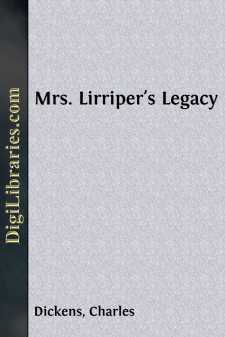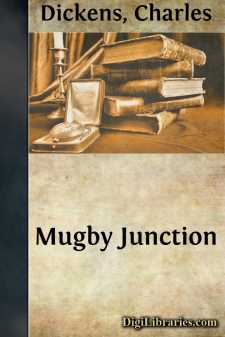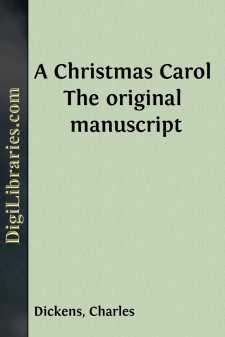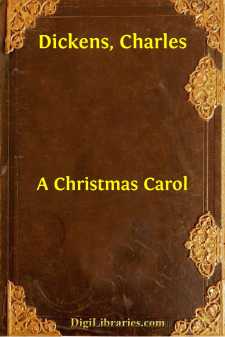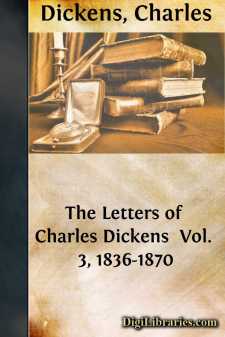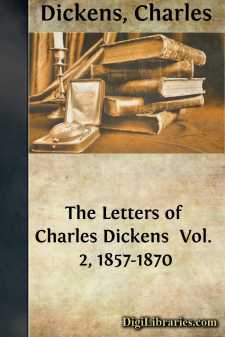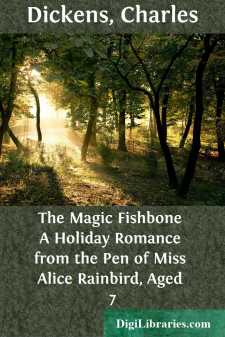Categories
- Antiques & Collectibles 13
- Architecture 36
- Art 48
- Bibles 22
- Biography & Autobiography 813
- Body, Mind & Spirit 142
- Business & Economics 28
- Children's Books 16
- Children's Fiction 13
- Computers 4
- Cooking 94
- Crafts & Hobbies 4
- Drama 346
- Education 46
- Family & Relationships 57
- Fiction 11829
- Games 19
- Gardening 17
- Health & Fitness 34
- History 1377
- House & Home 1
- Humor 147
- Juvenile Fiction 1873
- Juvenile Nonfiction 202
- Language Arts & Disciplines 88
- Law 16
- Literary Collections 686
- Literary Criticism 179
- Mathematics 13
- Medical 41
- Music 40
- Nature 179
- Non-Classifiable 1768
- Performing Arts 7
- Periodicals 1453
- Philosophy 64
- Photography 2
- Poetry 896
- Political Science 203
- Psychology 42
- Reference 154
- Religion 513
- Science 126
- Self-Help 84
- Social Science 81
- Sports & Recreation 34
- Study Aids 3
- Technology & Engineering 59
- Transportation 23
- Travel 463
- True Crime 29
Sort by:
by:
Charles Dickens
CHIRP THE FIRST The kettle began it! Don't tell me what Mrs. Peerybingle said. I know better. Mrs. Peerybingle may leave it on record to the end of time that she couldn't say which of them began it; but I say the kettle did. I ought to know, I hope? The kettle began it, full five minutes by the little waxy-faced Dutch clock in the corner, before the Cricket uttered a chirp. As if the clock...
more...
by:
Charles Dickens
CHAPTER I—MRS. LIRRIPER RELATES HOW SHE WENT ON, AND WENT OVER Ah! It’s pleasant to drop into my own easy-chair my dear though a little palpitating what with trotting up-stairs and what with trotting down, and why kitchen stairs should all be corner stairs is for the builders to justify though I do not think they fully understand their trade and never did, else why the sameness and why not more...
more...
by:
Charles Dickens
CHAPTER I—BARBOX BROTHERS I. “Guard! What place is this?” “Mugby Junction, sir.” “A windy place!” “Yes, it mostly is, sir.” “And looks comfortless indeed!” “Yes, it generally does, sir.” “Is it a rainy night still?” “Pours, sir.” “Open the door. I’ll get out.” “You’ll have, sir,” said the guard, glistening with drops of wet, and looking at the tearful...
more...
by:
Charles Dickens
MARLEY'S GHOST. Marley was dead: to begin with. There is no doubt whatever about that. The register of his burial was signed by the clergyman, the clerk, the undertaker, and the chief mourner. Scrooge signed it: and Scrooge's name was good upon 'Change, for anything he chose to put his hand to. Old Marley was as dead as a door-nail. Mind! I don't mean to say that I know, of my own...
more...
by:
Charles Dickens
INTRODUCTION The combined qualities of the realist and the idealist which Dickens possessed to a remarkable degree, together with his naturally jovial attitude toward life in general, seem to have given him a remarkably happy feeling toward Christmas, though the privations and hardships of his boyhood could have allowed him but little real experience with this day of days. Dickens gave his first formal...
more...
by:
Charles Dickens
1836 to 1839.Mr. John Hullah. Furnival's Inn,Sunday Evening (1836)(?).My dear Hullah,Have you seen The Examiner? It is rather depreciatory of the opera; but, like all inveterate critiques against Braham, so well done that I cannot help laughing at it, for the life and soul of me. I have seen The Sunday Times, The Dispatch, and The Satirist, all of which blow their critic trumpets against unhappy...
more...
by:
Charles Dickens
1857. NARRATIVE.Thiswas a very full year in many ways. In February, Charles Dickens obtained possession of Gad's Hill, and was able to turn workmen into it. In April he stayed, with his wife and sister-in-law, for a week or two at Wate's Hotel, Gravesend, to be at hand to superintend the beginning of his alterations of the house, and from thence we give a letter to Lord Carlisle. He removed...
more...
by:
Charles Dickens
A POOR MAN'S TALE OF A PATENT I AM not used to writing for print. What working-man, that never labours less (some Mondays, and Christmas Time and Easter Time excepted) than twelve or fourteen hours a day, is? But I have been asked to put down, plain, what I have got to say; and so I take pen-and-ink, and do it to the best of my power, hoping defects will find excuse. I was born nigh London, but...
more...
by:
Charles Dickens
FOREWORD The story contained herein was written by Charles Dickens in 1867. It is the second of four stories entitled “Holiday Romance” and was published originally in a children’s magazine in America. It purports to be written by a child aged seven. It was republished in England in “All the Year Round” in 1868. For this and four other Christmas pieces Dickens received £1,000. “Holiday...
more...
by:
Charles Dickens
CHAPTER 1. Dombey and Son Dombey sat in the corner of the darkened room in the great arm-chair by the bedside, and Son lay tucked up warm in a little basket bedstead, carefully disposed on a low settee immediately in front of the fire and close to it, as if his constitution were analogous to that of a muffin, and it was essential to toast him brown while he was very new. Dombey was about...
more...



